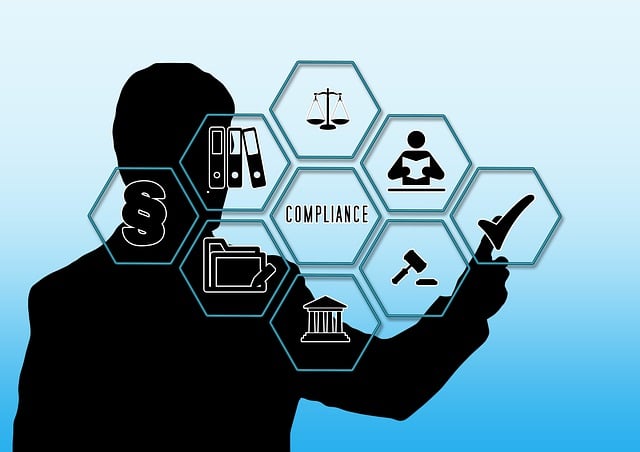Oregon Child Welfare Law: Expertise in Navigating DHS Proceedings

DHS proceedings in Oregon demand a profound understanding of state laws and regulations prioritizing…….
We are At Your Service
In the complex landscape of child welfare, the role of the Department of Human Services (DHS) attorney in Washington County, Oregon, is a pivotal one. This article delves into the intricacies of this position, exploring its multifaceted responsibilities, impact on vulnerable populations, and the intricate web of policies and challenges it navigates. By examining these aspects, we aim to provide a comprehensive understanding of how DHS-Child Welfare Attorneys contribute to the well-being of children and families in Washington County.
The DHS-Child Welfare Attorney in Washington County, Oregon, is a legal professional within the Department of Human Services tasked with ensuring the protection and promotion of children’s rights and interests. Their primary role involves advocating for vulnerable children and families involved with the child welfare system. This includes representing the department in legal proceedings, such as dependency cases, termination of parental rights, and adoption processes.
The modern concept of DHS-Child Welfare Attorneys emerged from the broader movement towards recognizing children’s rights and holding state institutions accountable. In Oregon, significant reforms were implemented in the late 20th century, leading to the establishment of a robust child welfare system. The role of these attorneys has evolved over time, adapting to changing legal landscapes and societal views on childhood protection.
The approach to child welfare globally has been influenced by Oregon’s practices, particularly in areas like foster care placement, permanency planning, and the rights of youth in the system. Countries worldwide have adopted elements of Oregon’s model, leading to improved outcomes for vulnerable children.
The child welfare services market, including legal support, is a significant sector within the social services industry. In Oregon, this market is characterized by:
Investing in child welfare legal services is seen as a strategic move by governments to:
Technology has revolutionized child welfare practices in Washington County:
Policies and regulations shape:
Case Study 1: Effective Representation in Dependency Cases
In a high-profile dependency case, the DHS-Child Welfare Attorney successfully argued for the placement of a child with relatives, ensuring a safe and stable environment while avoiding prolonged foster care. This outcome was achieved through meticulous legal strategy and collaboration with the family.
Case Study 2: Community Collaboration for Prevention
Washington County implemented a program where attorneys collaborate with local schools and community organizations to provide early intervention services. This proactive approach has led to reduced referrals to child welfare, highlighting the power of prevention strategies.
The DHS-Child Welfare Attorney in Washington County, Oregon, plays a critical role in safeguarding the rights and interests of vulnerable children and families. This article has explored various aspects of this position, from its historical roots to global influences, economic considerations, and technological advancements. By addressing challenges and highlighting successful strategies, we have presented a comprehensive view of this essential profession. As child welfare systems evolve, these attorneys will continue to be at the forefront, shaping policies and delivering legal services that promote justice and well-being for all children.
Q: What is the primary role of a DHS-Child Welfare Attorney?
A: Their main responsibility is to represent the Department of Human Services in legal matters related to child welfare, ensuring the protection of children’s rights and interests.
Q: How do global trends impact child welfare attorneys in Oregon?
A: Global influences have contributed to improved standards and practices in Oregon’s child welfare system, providing a more robust framework for attorneys to work within.
Q: Can technology improve case outcomes for vulnerable children?
A: Absolutely. Technology can enhance efficiency, data-driven decision-making, and access to services, all of which contribute to better case outcomes.
Q: What are some potential challenges facing the child welfare legal field in the future?
A: Emerging challenges include keeping up with rapidly changing technologies, addressing systemic biases, and providing specialized services to meet diverse family needs.

DHS proceedings in Oregon demand a profound understanding of state laws and regulations prioritizing…….

In Oregon, DHS proceedings ensure child welfare while protecting family rights. This guide outlines…….

Oregon Child Protective Services (OCPS) in Washington County safeguard vulnerable children from abus…….

Skilled legal representation is crucial in child welfare investigations, impacting outcomes for pare…….

Understanding rights within child welfare systems is vital for fair proceedings. Legal guidance from…….

Washington County child advocacy ensures youth in DHS proceedings understand their legal rights and…….

DHS proceedings in Oregon are crucial for protecting vulnerable children facing abuse or neglect. Le…….

Washington County offers a tailored legal aid program for Oregon Child Protective Services (OCPS) ca…….